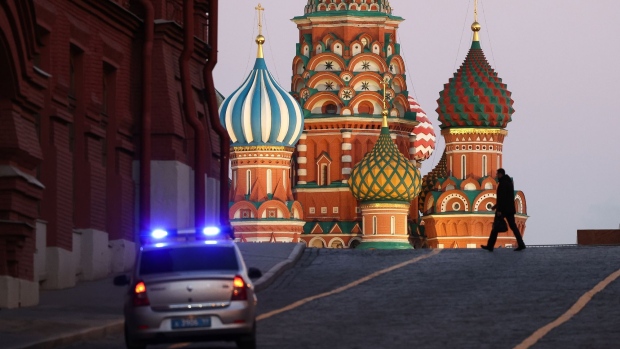Jun 8, 2022
Bond Investors Still Buy Debt From Nations With Lower ESG Scores Than Russia
, Bloomberg News

(Bloomberg) -- Ethical investors aren’t learning the lessons from a forced divestment of Russian assets as they continue to buy the government debt of autocratic nations, according to data provider Verisk Maplecroft.
Fifteen countries commonly included in sovereign debt funds have a worse environmental, social and governance (ESG) score than Russia, according to the firm’s ratings. Two of these, Turkey and Egypt, are more heavily weighted in typical portfolios than Russia was.
That poses a risk investors could get caught out again. New European regulations compelling funds to prove their ethical credentials could also push them to reconsider their strategies in emerging markets.
“Beyond Russia, there has been little significant change in EM portfolios’ holdings in countries that have highly questionable ESG profiles,” said Eileen Gavin, an analyst at the firm. “It’s not hard to imagine one of the many autocrats of the heavily traded markets sitting in sovereign portfolios doing something comparably bad.”
Bringing sustainable finance rankings to sovereign debt markets is still a nascent practice. Metrics and approaches designed for corporations don’t easily translate for governments, and there are concerns that applying ESG ratings in a simple way would unfairly raise the cost of capital for poorer countries.
Yet Russia’s sudden ostracization from global capital markets may yet prove a wake-up call for the industry. The nation was a common feature in ethically-labeled sovereign bond funds, in line with indexes such as JPMorgan Chase & Co.’s ESG products.
“The previous assumption that all EMs in a portfolio can be gradually prodded into alignment with the values of ESG investors no longer holds,” said Verisk’s head of markets James Lockhart Smith. “Something’s got to give, sooner or later.”
Their report said other EM portfolio stalwarts such as China, Saudi Arabia and Indonesia warranted fresh scrutiny.
China Stirs Unease for ESG Managers Blindsided by Russia’s War
In terms of size, the biggest concern for ESG investors is China, with some reassessing their holdings there in the wake of Russia’s invasion. Pure ESG funds domiciled just in Europe have about $130 billion invested in China assets, according to data compiled by Bloomberg earlier this year.
“Investors’ willingness to step away from Russia, where their hand was forced by sanctions anyway, contrasts with their ongoing involvement in China,” said Gavin. “The war is piling more pressure onto managers who have so far been just about able to navigate between autocratic issuers and a new cadre of ESG-aligned clients.”
©2022 Bloomberg L.P.






